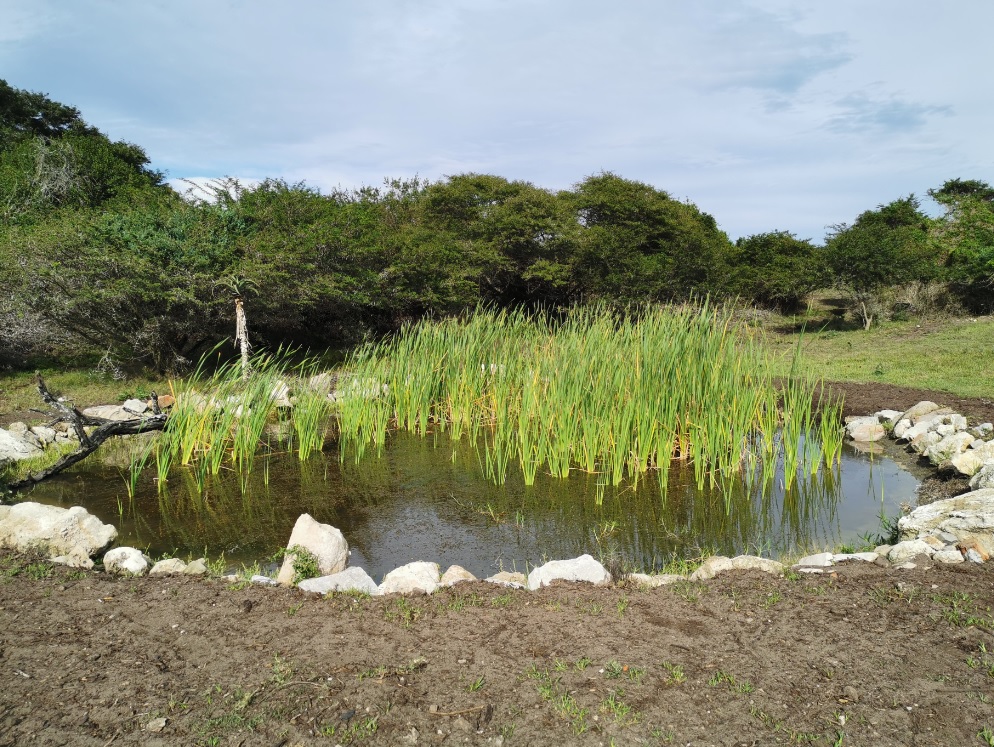A mere two years after man-made water ponds were introduced to the Sardinia Bay Golf & Wildlife Estate, the benefits to the natural environment are palpable.
Five ponds, measuring 40 square metres each, were constructed in 2018 to help dispose of reclaimed sewerage water. These were created in specific locations so that residents could admire the wildlife congregating at each.
There are now 13 ponds on the sprawling coastal estate on the outskirts of Port Elizabeth and, according to supervisor Hugh Wiblin, they are making quite an impact.
“The [new] ponds have definitely achieved their main goal. I have noticed a lot of activity around them.”
He says the water holes have been instrumental in attracting a wider variety of wildlife, particularly birds, and the improvement in biodiversity of once slightly barren ground is obvious to the naked eye.
“You can now see dragonflies, lizards and other species you wouldn’t have noticed before.”
Birds making Sardinia Bay Golf & Wildlife Estate their home for the first time are spoonbills, spur-winged geese, canaries and finch-type birds, which are very rare in the Eastern Cape.

The ponds are a bird-lover’s paradise and residents are often seen birdwatching, says Wiblin.
“They love the ponds. They will go out and sit in the bush with their binoculars to track the different kinds of birds.”
Apart from the guineafowl population that has exploded, he says the ponds have also attracted birds that are partial to a water habitat.
“There is a group of Egyptian geese that live at one of the ponds and they have had five chicks which are almost adults now.”
He explains that they try to spread out the drinking holes as much as possible so that the animals have more places to go.
The ponds capture rain as well as recycled water from the estate’s sewage treatment plant, with the latter good enough for animals and even people to consume.
Plans to introduce fish to combat the growth of algae are afoot, says Wiblin.
“With the high nutrients in the water, algae grow very fast and you need something, like fish, to combat that. Otherwise we must go in there ourselves and physically take the algae out, which is a lot of work.
“If we go ahead and add fish the residents would be allowed to go fishing as well.”
